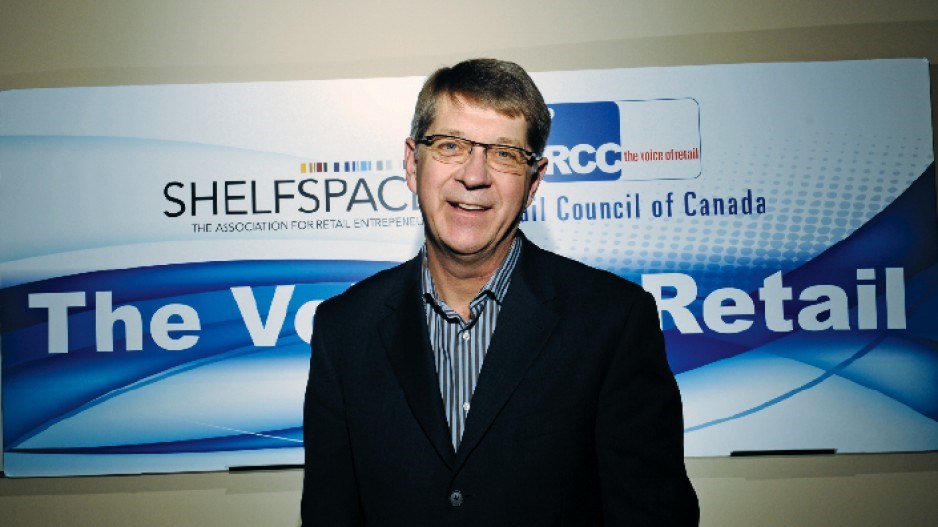A new organization that advocates for small retailers across Canada will be based in Vancouver following the July merger of the Retail Council of Canada (RCC) and Shelfspace, which was the merchants' association for retailers in B.C. and Alberta.
It's the latest in series of consolidations among associations catering to small-business owners.
Shelfspace CEO Mark Startup will head a future division of RCC, which will rebrand itself as MyStore on January 1.
Startup told Business in Vancouver that the merger will provide members of the small-retailer lobby group with lower membership fees and better perks.
"Shelfspace members now participate in group purchasing arrangements that are 10 times more powerful than we could negotiate on our own," he said.
Those negotiated benefits are on business essentials such as store insurance, credit card processing fees and even gasoline purchases.
Annual membership dues for most of Shelfspace's 4,500 members will drop from $300 annually to $225. RCC formerly had approximately 15,000 members who paid annual dues that ranged from $225 for small businesses to $85,000 for large organizations. Some entrepreneurs were members of both organizations but most were not. So the combined RCC membership is likely to be between 18,000 and 19,000.
The merger comes three years after Retail BC rebranded itself as Shelfspace following its 2008 merger with Retail Alberta.
British Columbia Restaurant and Foodservices Association (BCRFA) executives decided against rebranding the organization after it expanded into Alberta in 2007 when the Alberta Restaurant Association disbanded.
About 10% of BCFRA members are now based in Alberta.
B.C. and Ontario were the last provincial jurisdictions to have provincial retail lobby groups. So the future MyStore will boost lobbying efforts for small retailers with provincial grievances who do not live in either B.C. or Alberta.
Startup stressed that the future MyStore will lobby as effectively on provincial matters in B.C. as Shelfspace did.
Before the merger, Shelfspace and RCC employed six staff in B.C. That has dropped to five employees after one retirement.
Federal and provincial lobby groups battle for niche relevance
The Retail Council of Canada's merger with its Shelfspace provincial counterpart brings to the fore the thorny issue of why separate provincial and federal lobby groups ever existed.
Historically, the rationale for the separation in the retail sector was that the provincial lobby group would target provincial politicians and issues important to smaller businesses whereas the RCC would focus on lobbying MPs with issues important to larger retailers like Rona, Lululemon Athletica Inc. or SportChek.
In the past few years, however, the RCC has begun to serve smaller retailers.
Startup said separate provincial and federal retail lobby groups have their roots in the decades-old splintering of the Retail Merchants Association of Canada in the 1950s to become provincial organizations. The RCC was created in 1963 to fill what some considered to be a federal void.
Provincial retail lobby groups dropped like flies through the decades. The Retail Merchants Association of Canada (Ontario) Inc. (RMACO) still exists, although Startup said it is "principally a buying group, trying to [help independent convenience store owners] save money on the purchase of potato chips and Twinkies."
RMACO president Ralph Moyal said his organization lobbies governments, offers a broad range of programs to his undisclosed number of members and has no intention of merging with the RCC.
Over in the restaurant sector, BCRFA CEO Ian Tostenson said there's still a need for separate provincial and federal lobby groups.
"We're trying to keep the restaurant industry in B.C. strong," he said. "The Canadian Restaurant Association does a good job [of lobbying on federal issues], but their focus is different from ours."




